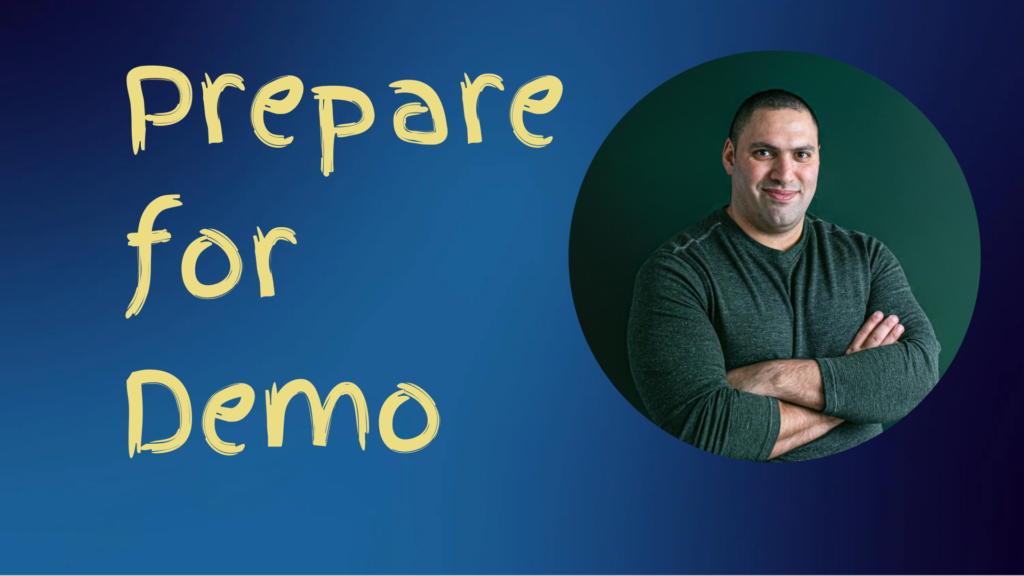
Blog

Notes:
One of the most talked about topic in Solution Engineering is the demo. I don’t think it’s the most important topic, but it’s top 5. It’s also something that most SEs have to do in an interview. In this podcast, I share how I teach my SEs to prepare for a demo, whether a customer demo or an interview demo.
And before I dig too deep into how to prepare for a demo, I share the most recent feedback one of my clients received after performing her interview demo.
How to Prepare:
- Problem summary slide
- I learned this from Chris White
- Based on the discovery calls or conversations I had with the account manager.
- List down the problems that you heard them discuss.
- Solving those problems through the demo is the end goal.
- Play around with the software,
- The amount you play around with the software is based on how well you know it.
- The more you know it, the less you play
- When you have new features, or working on something you’ve never done before, you spend some more time on it.
- See what is interesting and to who it would be interesting to
- See where you get errors.
- Create storylines,
- Now is when you get creative.
- What are the stories you want to tell? These are based on the problems that you discussed at the start.
- For example, you’re working with a CISO. What do they care about? Again, it’s based on the problems that we listed initially, but how does that affect them personally?
- I helped someone from a security
- Go through the flow,
- Now that we have the potential stories, we need to figure out the flow of the demo to support the story.
- Put yourself in the customer’s shoes and check for pitfalls and potential questions
- Remove any “cool features”
- Tighten the script
- No wasted frame
- What is some information I still want to know from them, create questions that I want to ask to generate conversation and get insight.
- Create vision-building questions
- Find the lightbulb moments
- Go through it again
- Practice several times
- Be critical. What is working, and what is not working?
- What can be removed from the demo or shortened in case something unforeseen happens, like a fire alarm, or they ask a lot of questions
- Dry run with my account manager
- Make sure they don’t do anything crazy
- Can’t blame you if things go wrong.
- Do the demo!


